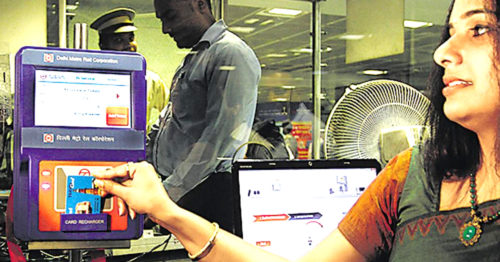Mumbai’s Metro Network Needs Uniform Fares and a Single Transport App
- 277 Views
- admin_desk
- October 11, 2024
- News
Mumbai’s metro system is expanding rapidly, with the launch of Metro 3 (Aqua Line), the city’s first underground metro. This fourth corridor adds to the existing elevated metro lines, reshaping how millions commute.
Traditionally, the suburban railways served as the most affordable public transport. However, since the introduction of Line 1 (Versova-Andheri-Ghatkopar) a decade ago, the metro has provided crucial east-west connectivity. The metro network now spans 59.19 km, easing daily commutes, but fare inconsistencies across lines are causing concern.
Metro 3, operational from Monday, charges ₹3.94 per km, making it the most expensive. In comparison, Line 1 costs ₹3.51 per km, while the newer Metro 2A and Metro 7 corridors charge ₹1.61 and ₹1.82 per km, respectively. Travelling across the full 35.1 km of these two lines lowers the average fare to ₹1.71 per km. Together, the metro lines handle 7-7.5 lakh passengers daily, but there is growing demand for a uniform fare structure, especially with new lines opening next year.
Another challenge is the absence of a single app for all metro lines. Commuters now switch between different apps, such as MetroConnect3 for the Aqua Line and Metro 1 for other corridors, adding inconvenience. Although Line 1 offers digital integration with Paytm and WhatsApp, it lacks a dedicated app. A unified app for all lines remains an unfulfilled need.
The fragmented management structure adds to the problem. While the Maha Mumbai Metro Operation Corporation Limited (MMMOCL) oversees Lines 2A and 7, it does not manage Metro 3 or Line 1, the latter being under Reliance Infrastructure amidst financial disputes with the state government.
Experts stress the need for a cohesive system like the National Common Mobility Card (NCMC), already usable on some lines, to cover all modes of transport—similar to global cities like London and Paris. A unified fare system and seamless ticketing across metros, trains, buses, and monorails are essential for smooth travel in Mumbai.
Recent Posts
- Narayanam Nageswara Rao Outlines NCS Sugars’ Roadmap for Modernisation and Efficiency in Sugar Production
- Dr. Craig Deligdish of Omni Healthcare Florida Highlights the Critical Role of Early Detection and Preventive Care in Managing Chronic Disease
- Western Railway to Develop Jogeshwari as Mumbai’s Fourth Long-Distance Terminus by 2027
- Rising Singer Zima Kamimoto Documents Behavior by Former AssistantAfter Months of Growing Concern
- Ghost Paradise Makes New Malayalam Film History in Australia

